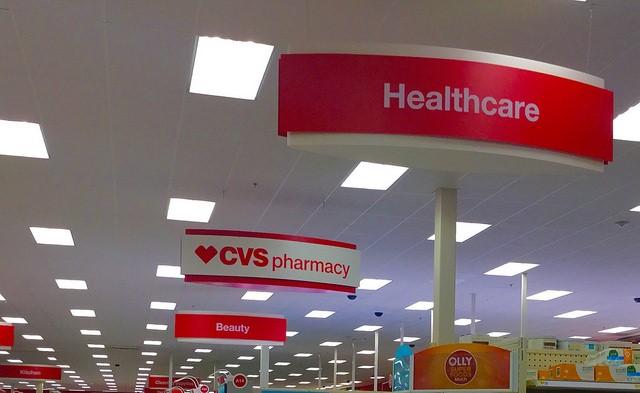
It was always the suspicion. When shadowy pharmacy middlemen started in 2019 to create yet another layer of middlemen, critics suspected they would be used to avoid transparency and skim even more money from the interstices of arcane — but wildly lucrative — drug transactions.
Now evidence is accumulating that it might be happening. Two government investigations this year accused the giant health conglomerates that own the middlemen of doing precisely that: hiding millions that were supposed to go to payers and pocketing the money themselves.
The first level of middlemen are known as pharmacy benefit managers, or PBMs. The three biggest, CVS Caremark, ExpressScripts and OptumRx, are part of health conglomerates, CVS Health, Cigna/Express Scripts and UnitedHealth Group, that are among the 15 largest corporations in the United States.
Each of those corporations also owns a top-10 insurer, and the PBMs represent those and other insurance companies in about 80% of all prescription-drug transactions conducted.
The PBMs create pharmacy networks and use an impenetrable system to determine how much to reimburse those pharmacies for the drugs they dispense. And, because CVS owns brick-and-mortar pharmacies and all three own mail-order operations, the PBMs determine reimbursements for their own pharmacies and those of their competitors.
The companies have been shown to use that lack of transparency to line their pockets. A state investigation found that in 2017 CVS Caremark and OptumRx billed Ohio Medicaid — taxpayers, in other words — $224 million more for prescription drugs than they paid the pharmacies that had bought and dispensed them.
PBMs also decide which drugs are covered when they create “formularies.” Because the big three control access to the vast majority of insured patients, they have enormous leverage to negotiate huge rebates, fees and other price concessions from the companies that make the drugs. That dynamic has been shown to result in big increases in the list prices on which your copayments are usually based. It’s also what you have to pay if you don’t have insurance.
Non-transparent rebates and other practices prompted a host of lawsuits, legislation and the Federal Trade Commission in 2022 undertook a major investigation of the PBM industry. In July, it issued a scathing interim report, saying it found what appeared to be anticompetitive practices.
The FTC also noted that the conglomerates that own the big PBMs have expanded dramatically in recent years, taking over an expanding swath of the healthcare industry. Combined, the conglomerates went from receiving 12% of all U.S. health care dollars in 2016 to 20% last year — a 67% increase in their share of the gargantuan healthcare market over eight years.
As scrutiny and calls for transparency mounted, the big PBMs created new businesses that critics said were aimed at avoiding transparency. Alternatively called “group-purchasing organizations” and “rebate aggregators,” they work on behalf of the big-three PBMs — their sister companies — and whatever other PBMs they can sign up.
Cigna/Express Scripts created the first group-purchasing organization, Ascent, in 2019. The other two companies quickly followed, with CVS launching Zinc in 2020 and UnitedHealth starting Emisar in 2021. The companies serve as the middlemen’s middlemen, negotiating with drugmakers on the PBMs’ behalf to extract huge price concessions in exchange for the PBMs including drugmakers’ products on their formularies.
Critics immediately suspected that the group-purchasing organizations were yet another veil behind which the big conglomerates would attempt to hide money they’d skimmed from prescription-drug transactions. Perhaps tellingly, two of the organizations — Ascent and Emisar — are headquartered overseas even though their business is in the United States.
Evidence emerged this year indicating that critics’ suspicions might have been on the money.
In March, the U.S. Postal Service’s inspector general accused Express Scripts’ Ascent of withholding nearly $16 million despite a contract requiring the company to refund “any and all compensation, financial benefits, or remuneration the PBM [or any Third Party] receives from a pharmaceutical manufacturer…, including by not limited to, discounts, credits, rebates (regardless of how categorized), market share incentives, chargebacks, commissions, [and] administrative or management fees… .”
Then in June, CVS agreed to pay the state of Illinois $45 million in alleged overcharges, at least part of them relating to Zinc, STAT reported.
Ohio Attorney General Dave Yost in March filed suit under the state’s antitrust law against Express Scripts and Ascent, accusing them of ripping off citizens of the Buckeye State.
“Ascent functions primarily to further expand Express Script’s stranglehold on the price of medications,” the suit says. “It also allows Express Scripts to coordinate pricing and other activities with its competitors.”
Yost’s office didn’t respond when asked if it might sue the other health giants in light of the actions by the Postal Service and the Illinois attorney general.
Ohio Capital Journal is part of States Newsroom, a nonprofit news network supported by grants and a coalition of donors as a 501c(3) public charity.
